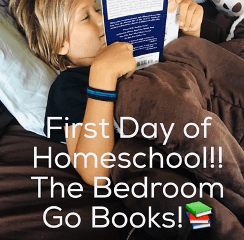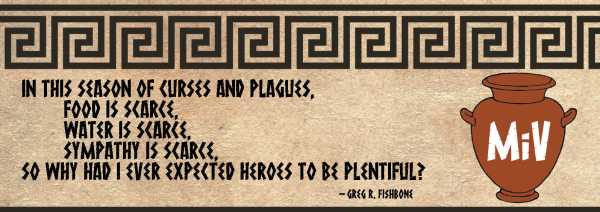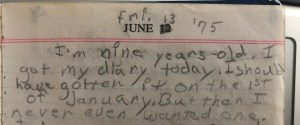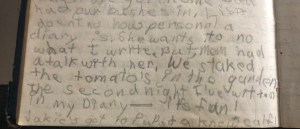by Aixa Perez-Prado

Last March schools across the world closed due the Covid-19 pandemic. Teachers, parents and students were unprepared. Many had difficulty with the online learning that was offered. Even under ideal circumstances, hours of daily screen time will not be feasible for many young learners. Therefore, some families have chosen to try their hand at home learning, otherwise known as homeschooling. If you are one of these families, or if you simply wish to augment the remote learning your child is receiving from school with books that will help you do it, this article is for you.
Out of school learning time can provide kids with a chance to acquire knowledge in a manner that is free and flexible. Allowing kids the freedom to explore topics of interest instills a love for learning and inspires curiosity. But this freedom is not always available in a highly structured school day. Thankfully, it can be available at home. Encouraging kids to nourish their personal passions is one way to help them thrive during this crisis. Giving them books that will help them discover those passions, is another. Does your kid love… Planets and Stars? Mysteries? Birds? There are so many books to choose from!
Opening up the home learning experience to embrace problem solving and critical / creative thinking activities prepares kids for learning anywhere. Giving kids the power to direct some of their own learning will help them obtain the identified 21st century skills: critical thinking, creative thinking, communication and collaboration.
Parents need to provide guidance, resources, great books, and encouragement to kids learning at home. However, they don’t need to provide all of the answers. The best teachers encourage learners to ask interesting questions and discover the answers themselves. They give learners the freedom to fail and try again. Making interesting and informative books available to kids is a great place to start a critical and creative thinking home learning life.
Check out my homeschooling tips and accompanying books below. They will help you help your kids flourish as critical and creative thinkers while learning at home.
Learning at home tips, and books to go with them:
Tip 1: Do not set unrealistic learning goals. Start small and build rather than the other way around. It is better for encouraging learning to start with small successes than to overreach and start by experiencing failure. Short stories can deliver meaningful content and help kids feel a quick sense of accomplishment. They can also be springboards for inspiring kids to read longer texts.
The Hero Next Door by Olugbemisola Rhuday-Perkovich (ed)
All the heroes in these stories make the world a better place. They do it by using acts of kindness to help others. Published in partnership with We Need Diverse Books, this vibrant anthology features thirteen acclaimed authors. Stories celebrate the hero in all of us. Authors include: William Alexander, Joseph Bruchac, Lamar Giles, Mike Jung, Hena Khan, Juana Medina, Ellen Oh, R. J. Palacio, Linda Sue Park and Anna Dobbin, Cynthia Leitich Smith, Ronald L. Smith, Rita Williams-Garcia, and Suma Subramaniam
Stories to Solve: Folktales from Around the World by George Shannon
This collection of fourteen illustrated mysteries from world folklore give readers a chance to figure out the solution to a problem by thinking critically, before the solution is given. Backmatter includes origins of the tales and more information for further research.
Tip 2: Be present. Put away cell phones and turn off the TV as much as you can. Listen with empathy and understanding to kid’s concerns and ideas without being dismissive. Use what is happening in the world as material for your home learning.
.
For a nonfiction possibility, this book offers a fearless glimpse into the Constitution including its failures and flaws. The text can be used to inspire kids to think critically.
The Kid Who Ran for President by Dan Gutman
A humorous and fast-paced account of a kid’s run for president as a third party candidate. A great book to inspire dialogue with kids about this election season. Kids learn how government works. and fails, while thinking critically and creatively about what makes a good president.
Tip 3: Answer questions while being honest with what you don’t know. Investigate unknowns together, encouraging kids to question and problem pose, exercising their critical thinking skills.
Song for a Whale by Lynne Kelly
Iris is a creative and critical thinking tech wiz. She can fix computers and repair old radios. But she’s the only deaf person at her school. Sometimes treat her like she’s not very bright and she often feels unheard, even by her mom. Then she learns about Blue 55, a real whale who is unable to speak to other whales. Iris immediately feels a connection. She has an idea to invent a way to “sing” to him! But he’s three thousand miles away. What can she do?
The Evolution of Calpurnia Tate by Jacqueline Kennedy
Calpurnia Virginia Tate is a critical thinker. She wonders about what she sees in nature. Calpurnia’s grumpy grandfather, a naturalist, helps her figure out why green grasshoppers get eaten more often than yellow ones. But Callie’s curiosity is not always rewarded by society. She struggles with society’s expectations of girls at a time when a girl interested in science is not well viewed.
Tip 4: Be flexible thinkers. Every family is different and diverse, you do not have to follow what any other family is doing. Kids learn in different ways. Families work together in different ways. Do what works for YOUR family.
Millicent Min Girl Genius by Lisa Yee
Millicent Min’s family is different from most of the families in her community. And so is the way she learns. Her classmates hate her for going to high school at such a young age. But Emily doesn’t know her IQ and actually thinks she’s cool. Millie decides to hide who she is and how her family works to finally make a real friend.
Music for Tigers by Michelle Kadarusman
Violinist Louisa ships off to Tasmania to spend the summer with her mother’s eccentric Australian relatives. And she’s not too happy about it. Life at the family’s remote camp in the Tasmanian rainforest is very different. There’s a quirky boy, a strange uncle, old journals and a Tasmanian tiger problem. Louisa has her work cut out for her! Can her music save the day?












